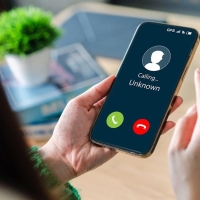From One Senior to Another
A Personal Story and Practical Advice for Seniors and Caregivers
As both a senior and a caregiver, I’ve seen firsthand how financial scams can shake our sense of safety and trust.
Not long ago, someone I care for deeply—an independent, intelligent woman in her late 70s—nearly fell victim to a “grandparent scam.” A stranger called pretending to be her grandson, claiming he was in jail and needed bail money immediately. The panic in her voice when she called me was real. Luckily, she reached out before sending any money, but I still think about how close she came to losing thousands of dollars.
That experience was a wake-up call for both of us. Since then, I’ve made it my mission—not just as a REALTOR®, but as someone who lives this life too—to help other seniors and caregivers stay informed, connected, and protected.
Here’s what I’ve learned and what I now share with my clients, friends, and family.
1. Know the Scams That Target Us
Fraudsters are smart and persistent—but if we know what to look for, we can outsmart them. Some of the most common scams include:
-
Grandparent Scams – They call pretending to be a grandchild in urgent trouble, hoping we’ll act fast before asking questions.
-
Romance Scams – They build fake emotional connections online, eventually asking for money.
-
Investment Scams – They promise high returns with no risk—something that rarely exists in the real world.
I always recommend checking the Canadian Anti-Fraud Centre website regularly. It’s an excellent source for up-to-date information.
2. Guard Our Personal Information
A good rule I follow and share with those I care for:
-
Don’t give out personal or financial information over the phone or through email—especially if you didn’t initiate the contact.
-
If something feels off, pause and verify. A real organization won’t pressure you to act immediately.
-
When in doubt, I call a family member, a caregiver, or a friend for a second opinion
3. Monitor Finances Regularly
Even small changes in routine can make a big difference. I personally:
-
Use online banking to check my account weekly.
-
Set up text alerts with my bank for unusual transactions.
-
Keep a simple monthly budget to track where my money’s going.
If you’re a caregiver, helping your loved one set these systems up is a great way to offer support without being overbearing
4. Create a Safe Space to Talk
The biggest mistake we can make is staying silent. It’s not always easy to talk about scams—we feel embarrassed or ashamed—but it happens to so many good people.
Let’s normalize these conversations. I encourage anyone who feels unsure to:
-
Ask someone they trust before acting on requests for money.
-
Report suspicious activity to the CAFC or local police.
-
Share their experiences to help others avoid the same traps.
A Message from Me—Your REALTOR®, and Someone Who Understands
As someone who lives the realities of aging and caregiving, I bring more than professional experience—I bring personal understanding, patience, and a strong desire to see you protected and empowered.
Whether you’re thinking about downsizing, preparing for future transitions, or helping a loved one navigate housing options, I’m here to walk with you—not just through the real estate process, but through the financial safety conversations that come with it.




Post a comment